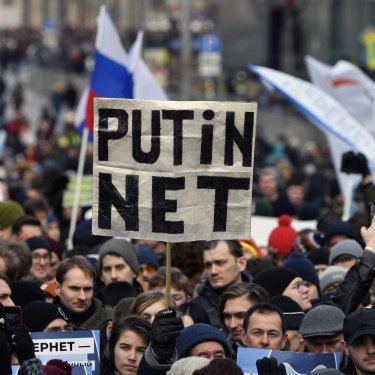10 NGOs urge Russia not to cut its Internet off from rest of the world

Update: The “sovereign Internet" bill was signed into law by President Vladimir Putin on 1 May.
Читать на русском / Read in Russian
Reporters Without Borders (RSF) and 9 other international human rights NGOs call on Vladimir Putin not to sign the “Sovereign Internet” bill into law because it would take Russia across a major new threshold in online censorship.
Internet freedom is now just a distant memory in Russia but the law that the Russian parliament’s upper house approved on 22 April and President Putin is poised to sign would take Russia much closer to the Chinese model of online censorship. It aims to establish a “sovereign” Russian Internet that is independent of the international Internet and is closely controlled by the Kremlin.
Internet service providers would be required to direct traffic through a centralized system of devices controlled by the state, with approved Internet exchange points, and to use a national domain name system (DNS). This would facilitate surveillance and, in the event of unspecified “security threats,” would allow the authorities to block traffic between Russia and the rest of the World Wide Web partially or fully, and within Russia.
The joint statement by the 10 NGOs points out that this law violates Russia’s international human rights obligations and, in particular, threatens press freedom and its citizens’ right to information. With its broad and overly vague wording, the law is all the more disturbing because it would reinforce an already well-stocked arsenal of repressive legislation.
Russia is ranked 149th out of 180 countries in RSF’s 2019 World Press Freedom Index.



